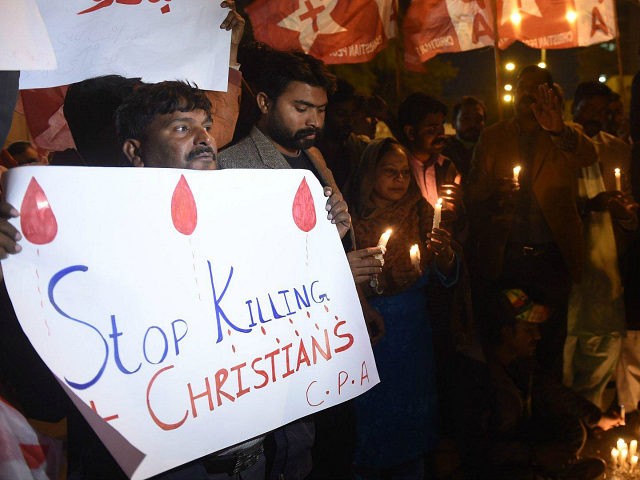“It is a dangerous time to be a person of faith,” said U.S. Ambassador to the Holy See, Callista Gingrich, Monday in kicking off a one-day symposium on religious liberty in Rome.
The meeting, which included high-ranking officials from the ecclesiastical and diplomatic world, was organized at the Pontifical University of the Holy Cross as a precursor to the historic Ministerial to Advance Religious Freedom that will take place next month in Washington, D.C.
Conveying a message of solidarity with the millions whose “human rights are limited or restricted entirely,” Ambassador Gingrich pointed out that “governments and societies that champion religious liberty are safer, more prosperous, and more secure.”
The ambassador discussed the State Department’s 2017 International Religious Freedom Report, which highlighted the serious violations of religious liberty in many places around the world. As one example, she cited Nicolas Maduro’s socialist dictatorship in Venezuela, which attacks Catholics for exposing the needs of the suffering populace.
Next month’s Ministerial to Advance Religious Freedom “will seek new commitments from like-minded governments to structure a fund to support the work of those who defend religious freedom,” she added.
Religious freedom is not just one more right alongside others, said Father Luis Navarro in his address to the symposium, but along with the right to life, is on a “higher level than all other rights” according to the teachings of Saint John Paul II.
The “source and synthesis” of all human rights is religious freedom, John Paul wrote in 1991, “understood as the right to live in the truth of one’s faith and in conformity with one’s transcendent dignity as a person.”
The meeting bore special significance as the 20th anniversary of the International Religious Freedom Act approaches, while religious liberty around the globe has reached a critical point. According to recent reports, 75 percent of victims of religious persecution are Christians, a disturbing fact of which many are unaware or unconcerned.
With over 200 million Christians worldwide facing “severe persecution,” U.S. Catholics are on the whole more worried about “climate change” than the persecution of their brothers and sisters in the faith, polls have shown.
In a study released last week, the Pew Research Center revealed that restrictions on religious belief and practice increased around the world for the second year in a row in 2016, the latest year for which data were available.
As the United States gears up for its unprecedented global summit on religious liberty to be held in late July, Pew found that 28 percent of all countries have “high” or “very high” levels of government restrictions on religion, up from 25 percent the prior year and up from 20 percent in 2007, when the Washington-based think tank began following the trend.
Two panels at Monday’s symposium facilitated discussions meant to enhance the dialogue at next month’s Ministerial. Genocide survivors recounted the harrowing stories of their brutal persecution as a room full of journalists and foreign dignitaries frantically scrawled notes onto their legal pads.
Ms. Salwa Khalaf Rasho, a Yazidi woman who was enslaved by the Islamic State in 2014, said that she and other persecuted religious minorities “have nothing beautiful in our lives to discuss.”
For his part, Cardinal Joseph Coutts, Archbishop of Karachi, Pakistan, detailed how Islamic extremists have eaten away at the religious freedom supposed guaranteed by their constitution. Pakistani blasphemy laws prescribe execution or life imprisonment for anyone accused of offences against the prophet Muhammad or the Quran, Islam’s holy book.
Religious freedom, Coutts noted, is necessary for the well-being and harmony of society because it recognizes the dignity of every human person. Coutts echoed Pope John Paul II’s call for interreligious dialogue, which unites truth-seekers in a common pursuit of justice. Coutts went on to praise the Trump Administration’s tackling of anti-Christian sentiment and actions in the Middle East.
In his closing remarks, the Vatican’s Secretary of State, Cardinal Pietro Parolin, called for “full respect of the rule of law,” allowing natural law to govern the lives of all persons equal in dignity.
As Article 18 of the Universal Declaration of Human Rights affirms, “everyone has the right to freedom of thought, conscience and religion,” he observed.
Follow Thomas D. Williams on Twitter Follow @tdwilliamsrome

COMMENTS
Please let us know if you're having issues with commenting.